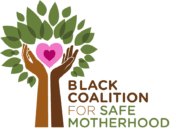Reclaim the Joy, Hope and Spirituality of Birth – Grow the Black Birth Workforce
The April 2021 Love Letter to Black birthing people provides a list of valuable suggestions for improving birthing experiences and outcomes. In rural and poor areas, because of shortages of Black midwives and doctors, it can be challenging to find a culturally congruent (Black) doctor or midwife and depends on transportation and insurance coverage. In addition, the medical industrial complex puts production pressure on providers, which often limits the time even the most compassionate clinician can spend listening mindfully to their patients. Despite these obstacles, and the recognition that racism and capitalism dominate healthcare, the Black birth workforce knows how the Black community can come together and reclaim the joy, hope and spirituality of birth.
Doulas, Midwives, Nurses, Lactation Support and Group Prenatal Care
Access to doula support, group prenatal care, childbirth education, and the midwifery model of care all need to be scaled up in Black communities. Research shows these solutions positively impact maternal and infant health. While we await slow change in the provision of maternity services and the elimination of racism in medicine: the Black community can SOS, ‘Save Our Selves’ – as Home Birth Midwife Nubia Martin recommends. Nubia raises funds to cover the costs of home births for families who prefer autonomy or want to avoid hospital birth. Doula Trainings like that of Midwife Shafia Monroe and Midwife Jennie Joseph’s new School of Midwifery also show how Black women are leading the charge.
Holistic Community Support
In NYC, Doula collectives like Ancient Song Doula Services and Bronx Rebirth and Progress, give out diapers and food and offer free or low-cost doula support to birthing families. Black women led community-based prenatal care and birthing centers are growing in number, albeit slowly due to scarce funding. The Birth Center Equity Fund seeks to address this obstacle.
Digital Resources and Vetting Maternity Services
Digital platformed initiatives, developed by Black women, include the Irth App with Yelp like reviews of maternity services, the Believe Her peer support app, and the Health In Her Hue App which connects to culturally competent providers. These can help steer consumers away from poor performing health care services and provide important mental health support.
Asserting Rights for Person Centered Care
Black Coalition for Safe Motherhood (where I am a principal) promotes its ACTT Curriculum in Black communities nationwide. ACTT is an acronym for the powerful and self-affirming steps mothers and their supporters (advocates) can take to engage with providers. Knowing about patients’ rights to self-determination and respectful care, and practicing ways to assert those rights, helps ACTT participants navigate maternity services with confidence.
- Ask Questions until You Understand the Answers
- Claim Your Space — Physical and Mental
- Trust Your Body
- Tell Your Story
In Black communities across the nation, churches, women’s groups, sororities, nurses, doctors, midwives, and doulas are mobilizing to protect and empower birthing families. They are continuing the African tradition of Ubuntu — in recognition of our shared humanity – knowing that it takes a village for Black families to thrive with hope and joy.


